THE PINK PANTHER (1963)
The bumbling Inspector Clouseau travels to Rome to catch a notorious jewel thief known as The Phantom...
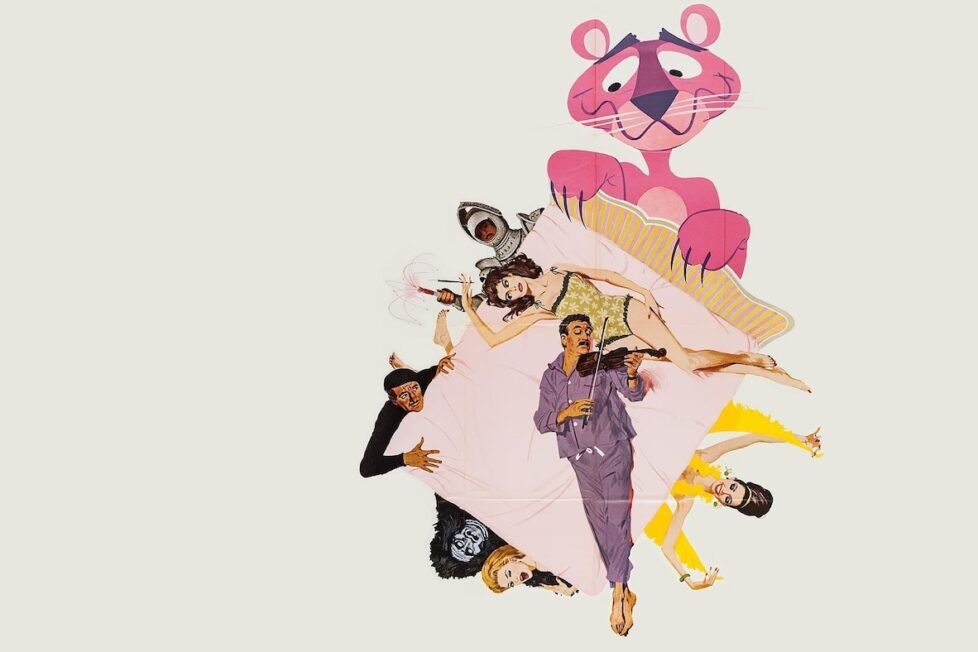
The bumbling Inspector Clouseau travels to Rome to catch a notorious jewel thief known as The Phantom...


The iconic theme practically bounces across the screen: De-Dum… De-Dum… I’ll let you hum the rest. You’re certain to know it. That’s because there are few scores quite as instantly memorable as the one in The Pink Panther; one could argue the score is more engrained in our pop culture subconscious than the film itself. The franchise has had so many additions—with anything released after 1978 being an appalling, desperate mishmash of unoriginal slapstick fueled by nostalgia—that the perception of the original has likely become clouded, its memory unjustly hazy.
60 years after its release, The Pink Panther remains a hilarious romp. Despite its uproarious absurdity, the film somehow manages to remain grounded, never veering into mere silliness or excessive wackiness. Instead, this ensemble piece strikes the delicate balance of being just the right amount of ridiculous. As Inspector Clouseau (Peter Sellers) embarks on a mission to apprehend a notorious jewel thief, ‘The Phantom’, he and his wife Simone (Capucine) find themselves at a luxurious skiing resort, anxiously awaiting the criminal’s next move. After all, Princess Dala (Claudia Cardinale), the proud owner of the titular priceless diamond, will be there. With multiple parties vying for the coveted gem, it soon becomes a matter of who will steal the Pink Panther first.
With a competent cast exuding exceptional charisma, this comedy was always destined for triumph; in an ensemble farce, chemistry becomes the most important component for success. However, the assured direction of Blake Edwards, coupled with a masterful screenplay brimming with a seemingly endless stream of improbable, yet comical situations, further amplifies the allure of the cast, transforming this film into a classic of cinema.
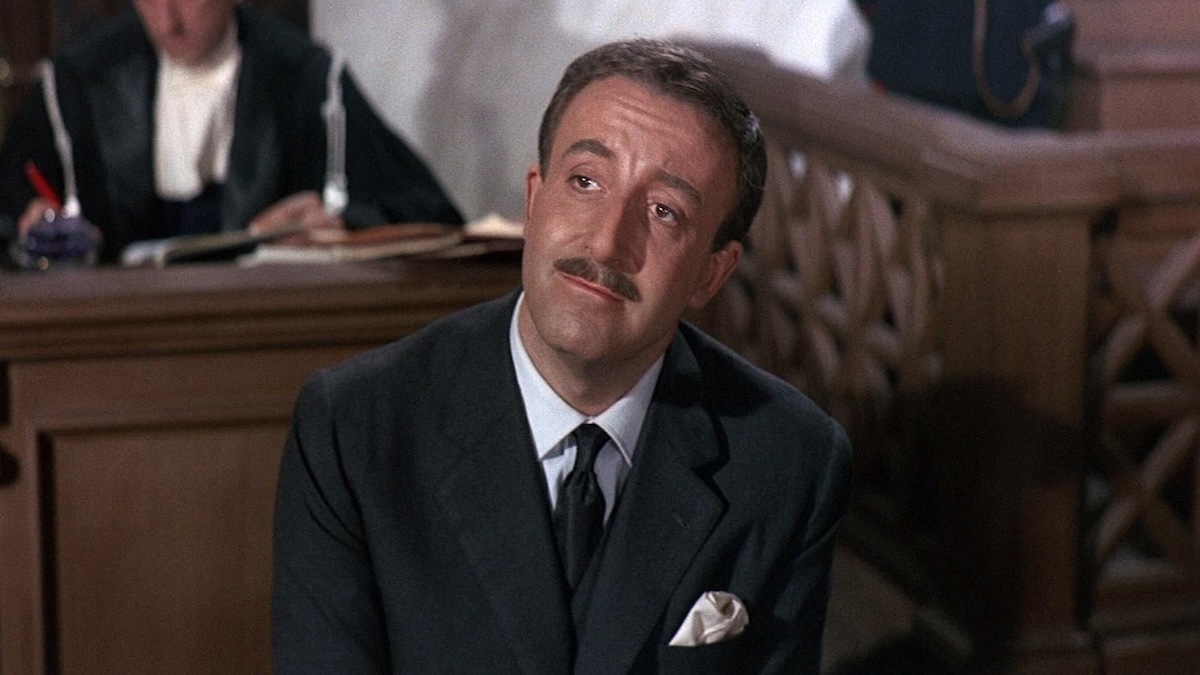
Identifying what brand of comedy is on display in Edwards’ The Pink Panther isn’t as easy a task as one might think. While traces of screwball comedy can be discerned, it doesn’t entirely fit into this category. While there are instances of the lighthearted battle of the sexes and attempts at romance, both of which are hallmarks of classic screwball comedies like It Happened One Night (1934) and Bringing Up Baby (1938), these are peripheral to the plot and seldom serve as the focal point of the laughs.
The Pink Panther is more accurately described as a crime farce. While it may not be the first of its kind, it undoubtedly stands out as the most groundbreaking example of its time; few films can claim its same level of historical significance. The plot unfolds at a relaxed, nonchalant pace, never quite becoming serious despite the actors’ fervent performances. Scenes involving four individuals in a room that should only contain two provide tremendous entertainment value: Simone Clousea trying to keep everyone unaware of each other’s presence is marvellously done and exemplifies Edwards’ expertise in sustaining a farcical tone.
Sight gags are everywhere, ensuring that comedic appeal is always within reach. Door handles break at the most inconvenient moments, trapping hapless characters. Objects or people need to be hastily concealed, while a key figure—often the duplicitous Simone—acts as though nothing is afoot. Inspector Clouseau’s undiagnosed dyspraxia and blundering provide the lion’s share of the slapstick, which somehow never becomes tiring or overdone. Regrettably, the sequels gradually rendered his poor coordination into a worn-out attempt at humour, but it’s always fresh in the original.
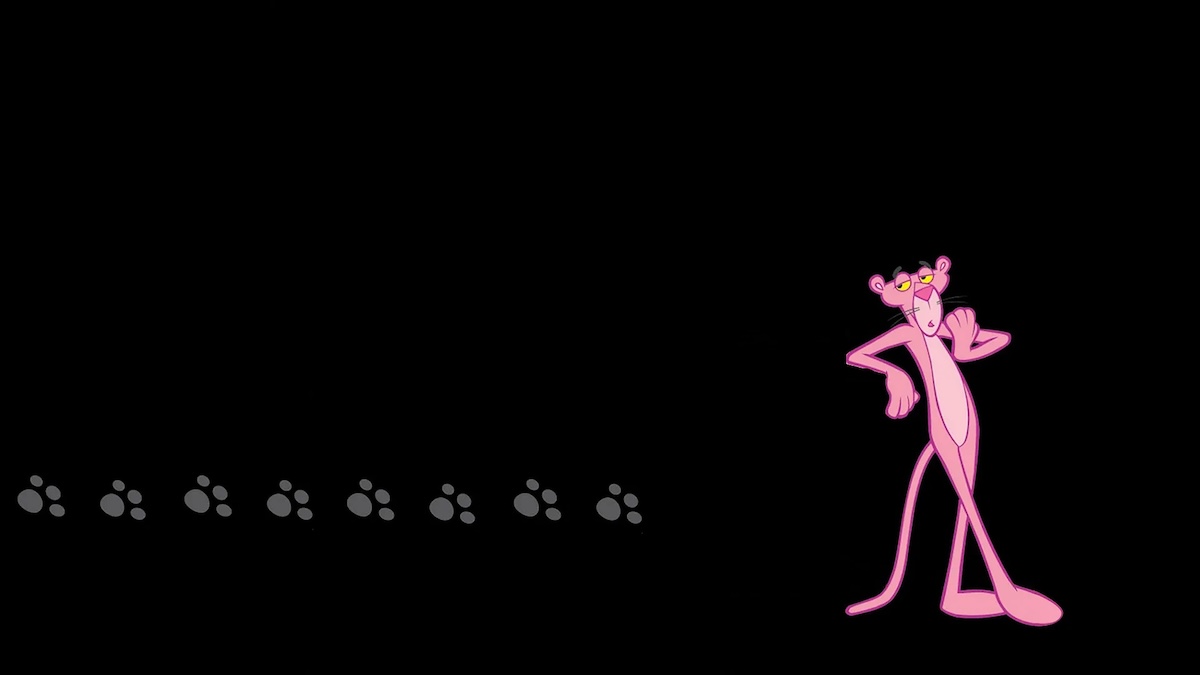
The slapstick comedy demonstrates the influence of the Marx Brothers, one of the most innovative comedy troupes of the 20th-century. Indeed, entire sketches seem to have been inspired by those wacky performers. The bedroom sequence where an unwelcome staff member insists on bringing in an even more unwelcome maid is reminiscent of the cabin scene from A Night at the Opera (1935); one can hear Groucho Marx’s deadpan delivery “You better make those nails short—it’s getting kind of crowded in here.”
Two befuddled gorillas looking at each other, trying to ascertain whether or not they’re staring into a mirror, is a direct homage to Duck Soup (1933). While the wordplay in The Pink Panther may not be as inspired—or as relentless—as that in Marx Brothers films, there are moments when Edwards and Maurice Richlin’s writing truly shines. Clouseau warning police officers disguised in a zebra costume that their misconduct will force him to take their stripes is a personal favourite.
One notable aspect of Edwards’s approach, though subjective, is his introduction of stakes in certain scenes. There’s a gravity to The Pink Panther that’s lacking from the Marx Brothers’ films. The Marx Brothers’ family troupe were incessantly blasé in their films and never took things seriously (and by all accounts, their off-screen personalities were quite similar). As a result, the potential consequences of their antics never feel particularly dire. In contrast, the threat of Simone’s exposure or the potential downfalls of Sir Charles Lytton (David Niven) and George Lytton (Robert Wagner), creates narrative tension that more often than not bursts into laughter.
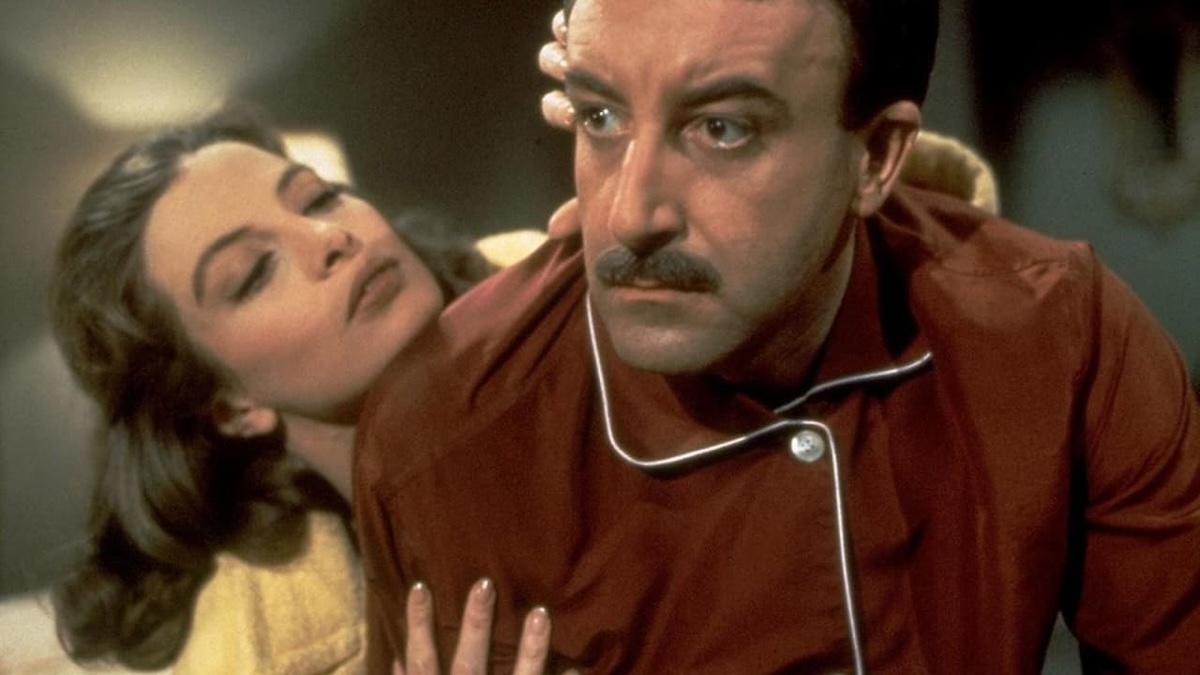
Of course, the list of influences extends far beyond this. Peter Sellers found inspiration for his bumbling, maladroit portrayal of Clouseau in the likes of silent film stars Charlie Chaplin and Buster Keaton. Clouseau’s accidental stumble into a stretcher and his subsequent reluctant removal echo Chaplin’s The Tramp character. Similarly, George skiing headlong into Charles, then continuing on with his dog in arms, is very reminiscent of some of the comedic stunt work performed by the Great Stone Face.
While the filmmakers take a large spoonful of inspiration from geniuses of the silent era, they make fantastic use of sound. Objects placed off-screen re-enter the narrative with a resounding bang, often moments after the audience has forgotten about their presence. The splintering crunch of a violin crushed beneath a careless foot is comedic gold. The unannounced pop of a champagne cork, shattering the tranquillity of a darkened bedroom, is hilarious. The cacophony of a four-car pile-up off-screen serves as another shining example. These instances offer contemporary comedy filmmakers a masterclass in employing auditory cues to deliver a joke. Some laughs, it seems, should be suggested, not explicitly conveyed.
Though The Pink Panther stands on the shoulders of giants, it’s clear that it’s become a giant itself. Later crime farces like A Fish Called Wanda (1988) and Dirty Rotten Scoundrels (1988) bear a striking resemblance to The Pink Panther. Both films feature multiple con artists who employ hilariously unscrupulous tactics to outmanoeuvre each other or evade capture. Rian Johnson’s Knives Out (2019) can also be seen as a descendant, proving the comedy’s enduring legacy into the 21st-century. The pervasive influence The Pink Panther has had on film firmly establishes its cultural importance for the development of the comedy genre. This influence was acknowledged by the Library of Congress in 2010 when the film was selected for preservation due to its historical and aesthetic significance.
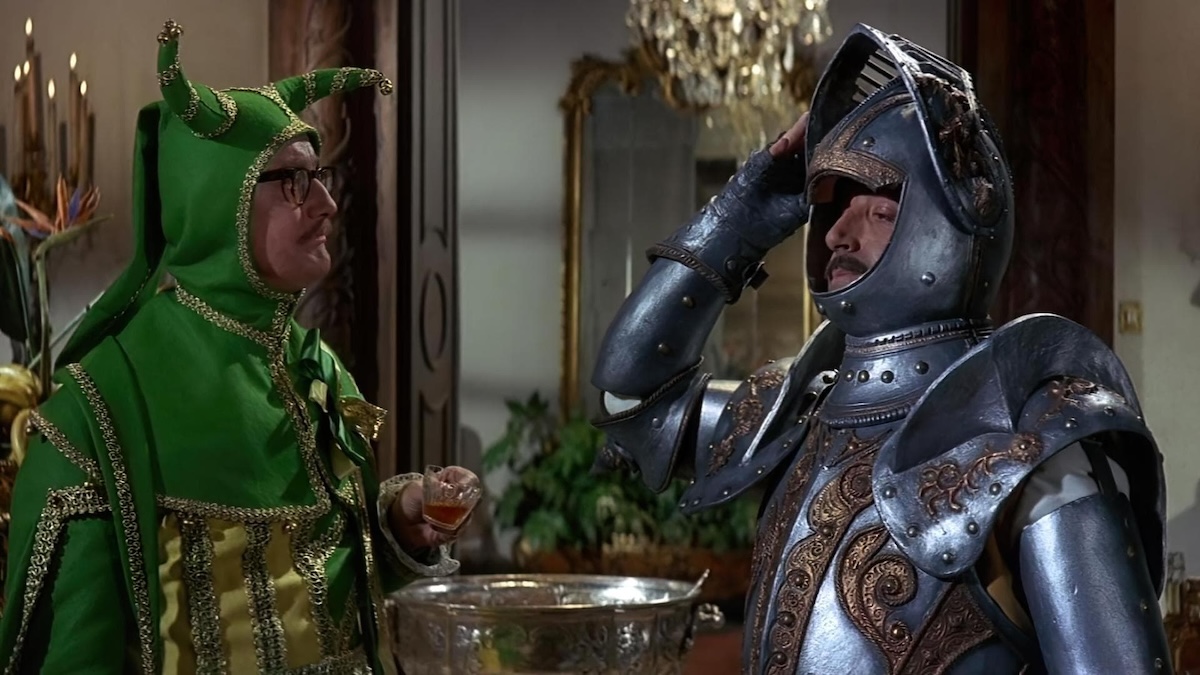
The film would be nothing without the remarkable performances. Capucine as Clouseau’s deceitful spouse is outstanding and expertly convinces in both of her personas. Similarly, Claudia Cardinale’s portrayal of a princess surrounded by opportunistic fiends is equally compelling. Despite the dubbing of her performance, it was done so skillfully that you can’t even notice.
David Niven’s portrayal of Sir Charles Lytton was so refined that he went on to embody the epitome of sophistication on the silver screen: James Bond in Casino Royale (1967). He was Ian Fleming’s original choice for the iconic role. While the name of Sean Connery is synonymous with the British superspy, Fleming wrote the novels with the debonair Niven in mind. However, Niven’s portrayal of Bond was limited to a single film at the age of 57.
No doubt, there’s only one name to speak of when thinking about The Pink Panther, either the original film or the subsequent series: Peter Sellers. He expertly incorporates a humble dignity and a code of honour into the character of Clouseau, making his ill-fated endeavours all the funnier. If not for his uproarious portrayal, Sellers’ depiction of a diligently honourable police detective could even border on tragedy. Fortunately, Sellers’ is unendingly amusing. His juxtaposition of subtle facial expressions and exaggerated body movements creates visual gold even when there’s no spoken line to deliver. But when a line does arise, he delivers it with aplomb: “If you’ve seen one Stradivarius, you’ve seen them all.”
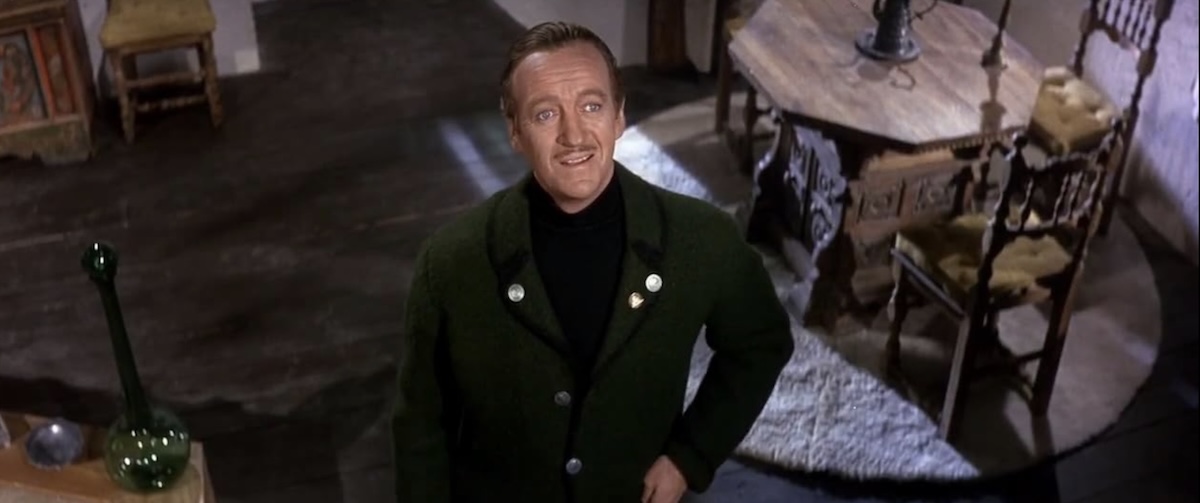
Upon the movie’s release, Sellers had firmly established himself as a comedy mainstay—at least as this character. His portrayal left an indelible mark on audiences, as well as director Blake Edwards, who loved the experience of their first collaboration. This resulted in Sellers’ casting as the lead character in an immediate sequel. Remarkably, the next instalment in the newly dubbed Pink Panther series wasn’t only released within a year but also met with widespread critical acclaim. Unfortunately, familiarity breeds contempt, and this adage holds for Sellers’ relationship with the character: he grew to resent the role, likely exacerbated by his deteriorating mental and physical health.
Given Peter Sellers’s integral role in The Pink Panther—and his starring role in four subsequent films—it’s surprising to note that he was initially not considered for the role. The part was originally slated for Peter Ustinov. While Ustinov was an acclaimed thespian, imagining him as the bumbling Inspector Clouseau is a difficult task. Despite winning an Academy Award for ‘Best Supporting Actor’ for the comedy Topkapi (1964), just one year after The Pink Panther was released, Ustinov never demonstrated the particular kind of funny that Sellers does. Thankfully, Ustinov withdrew from the production upon his wife’s suggestion, paving the way for Sellers to become a global movie star.
The Pink Panther deserves to be remembered for the brilliant performances it features as well as its contributions to cinematic comedy. The writing on display is stellar, masterfully blending suspenseful and hilarious scenes with sharp and superlative one-liners. However, the brilliance of the script is amplified by the directorial prowess of Edwards, who effectively controls what could have been a monumental mess. Under his guidance, the film transforms into a riotous comedy, one that garners just as many laughs as it first did six decades ago.
USA • UK | 1963 | 113 MINUTES | 2:20:1 | COLOUR | ENGLISH

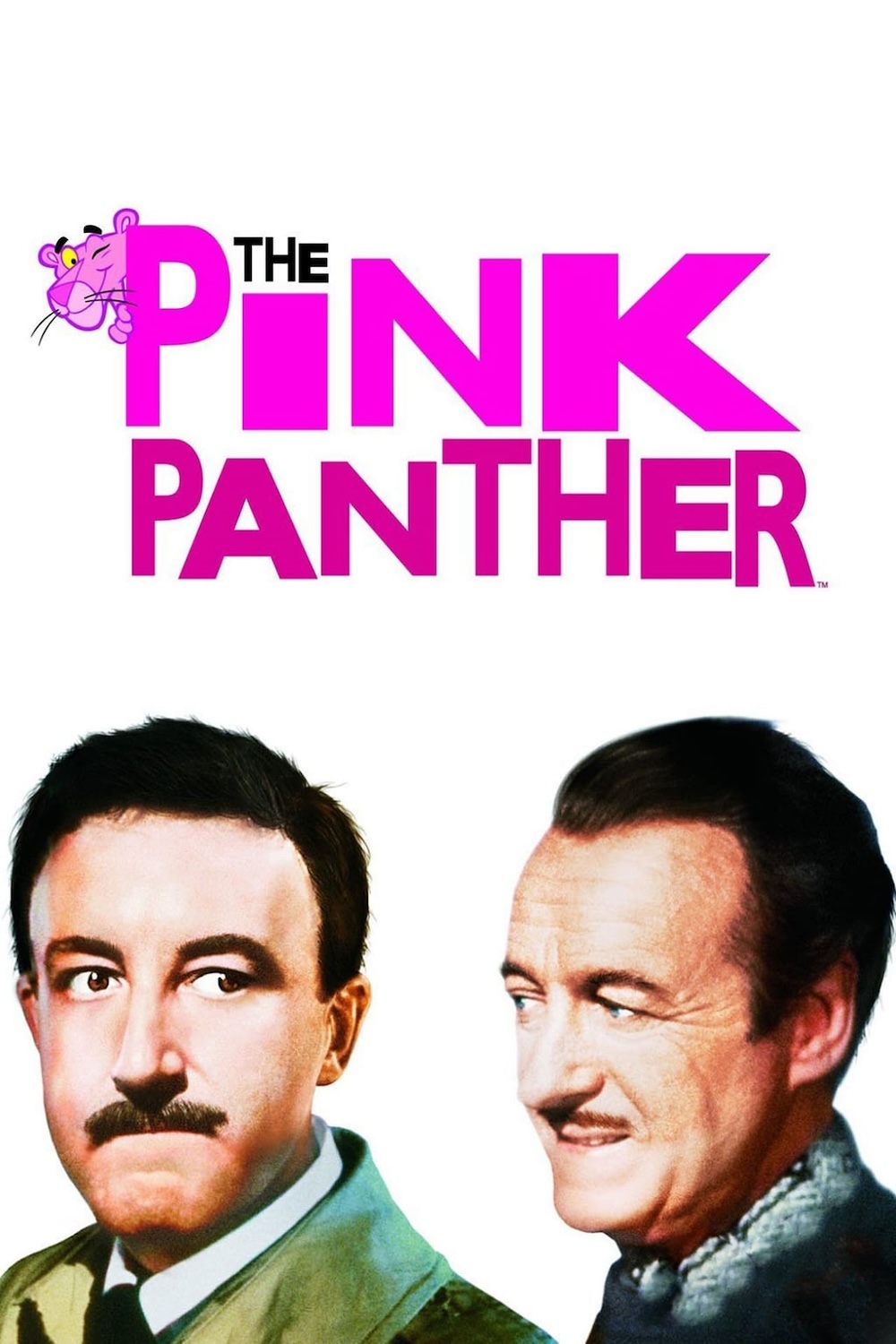
director: Blake Edwards.
writers: Blake Edwards & Maurice Richlin.
starring: Peter Sellers, David Niven, Capucine, Claudia Cardinale, Robert Wagner & Colin Gordon.
